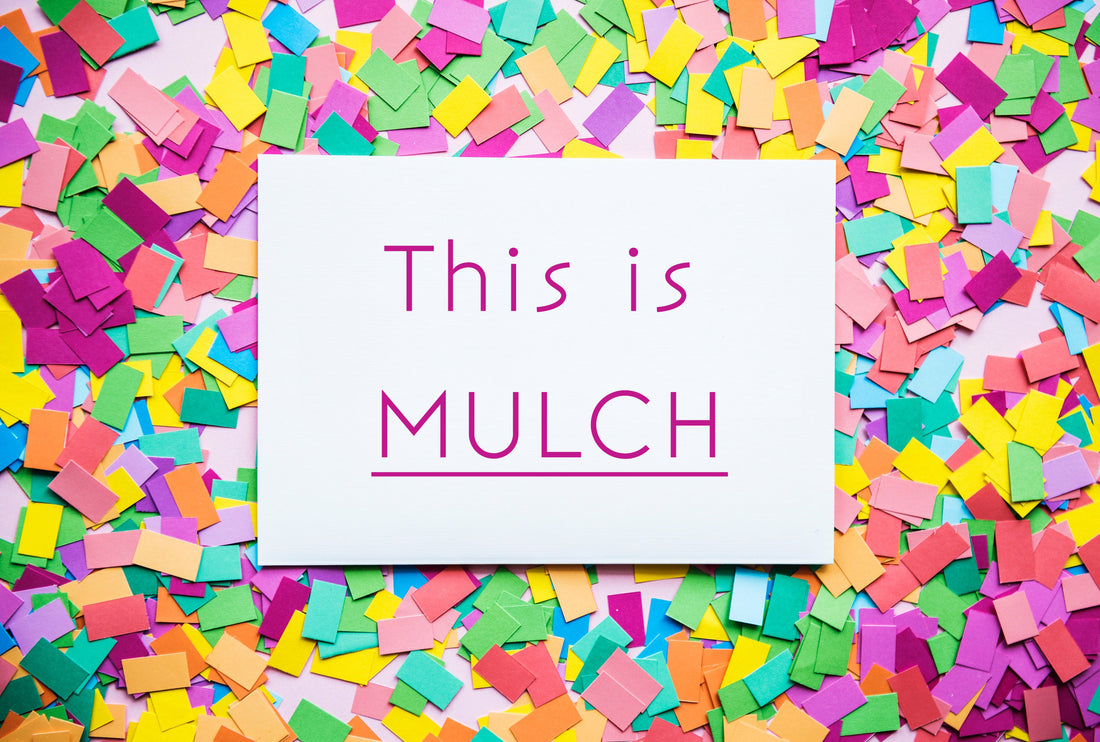Mulch! When it comes to gardening the more the merrier. Mulch helps with weeds. Mulch protects dirt from drying out in the hot sun. It feeds our friends the worms. It insulates the soil's surface. And keeps it fluffy.
Mulch comes in all shapes and sizes. It can break down to improve your soil or last like stone. Here's some of our favorites:
FREEBIES
- Woodchip: rough chip is often available for free from local arborists! Try to get less than half pine, eucalyptus or cedar if possible.
- Green Mulch: green waste mulch is available from many municipalities for free - only bummer is that it often has some garbage shreds and plastic mixed in that you'll have to clean out.
- Dried leaves: all those leaves you rake up in autumn? Put 'em right back on your soil! Worms LOVE 'em and the plants you mulch them with will too.
- Dried clippings: Dried grass clippings,
- Shredded paper: or a few bales of barley or oat straw from your local feed store
- Sawdust: great for berries and evergreen trees. Mix with a little nitrogen-rich manure or fertilizer when spreading.
CLASSY $MULCH$
- Straw: the cheapest of the classy mulches. Barley & oat are our personal favorites. BEST mulch for veggies & tender herbs.
- Decomposed Granite (DG): Great for landscapes and areas with little to no irrigation (native, super drought tolerant or cactus)
- High-grade Woodchip: we prefer dye-free. High-grade woodchip is best for pathways, playground areas and locations you want a finer finish.
- Gravel & Decorative Rock: Good for insulating soil when it's cool but bad for radiating extra heat when its hot. Also a pain to clean (blowing is best) but dang is it pretty!
How deep should I mulch?
2-2 1/2 inches deep is ideal. Never mulch deeper than 3 INCHES. One inch deep is not enough to offer full benefits but it's better than nothing!
Want to know more about mulch? Click here for some tips about using mulch to protect plants from cold.




